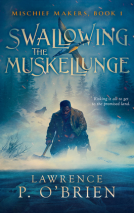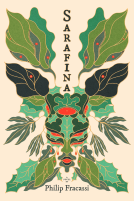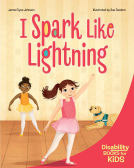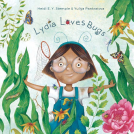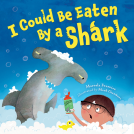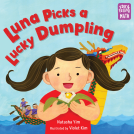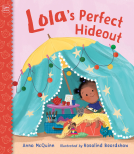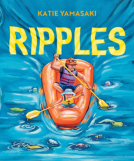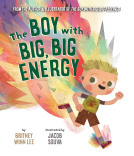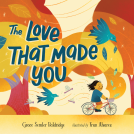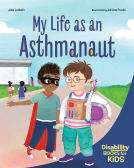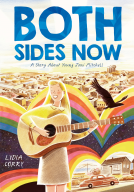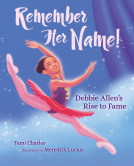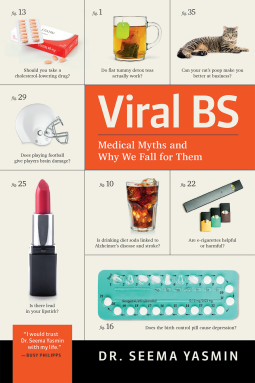
Viral BS: Medical Myths and Why We Fall for Them
by Seema Yasmin
This title was previously available on NetGalley and is now archived.
Send NetGalley books directly to your Kindle or Kindle app
1
To read on a Kindle or Kindle app, please add kindle@netgalley.com as an approved email address to receive files in your Amazon account. Click here for step-by-step instructions.
2
Also find your Kindle email address within your Amazon account, and enter it here.
Pub Date Jan 12 2021 | Archive Date Feb 04 2021
Talking about this book? Use #ViralBSMedicalMythsandWhyWeFallforThem #NetGalley. More hashtag tips!
Description
In Viral BS, medical journalist, doctor, professor, and former CDC disease detective Seema Yasmin, driven by a need to set the record straight, dissects some of the most widely circulating medical myths and pseudoscience. Exploring how epidemics of misinformation and disinformation can spread faster than microbes, Dr. Yasmin asks why bad science is sometimes more believable and contagious than the facts. Each easy-to-read chapter covers a specific myth, whether it has endured for many years or hit the headlines more recently. Dr. Yasmin explores such pressing questions as
• Do cell phones, Nutella, or bacon cause cancer?
• Does playing football cause brain disease?
• Should you eat your placenta?
• Do the flat tummy teas promoted by celebs on Instagram actually work?
• Is the CDC banned from studying guns?
• Do patients cared for by female doctors live longer?
• Is trauma inherited?
• Is suicide contagious?
and much more.
Taking a deep dive into the health and science questions you have always wanted answered, this authoritative and entertaining book empowers readers to reach their own conclusions. Viral BS even comes with Dr. Yasmin's handy pull-out-and-keep Bulls*%t Detection Kit.
Available Editions
| EDITION | Hardcover |
| ISBN | 9781421440407 |
| PRICE | $24.95 (USD) |
Average rating from 60 members
Featured Reviews
Excellent science writing
I enjoyed this book. Dr. Seema Yasmin is a good story-teller and her writing is compelling. At times, her sense of humor shows through. The book consists of short chapters on various medical topics and I fell into the trap of, “I’ll just read one more” where one more became two more, etc. This book is well worth the read.
Disclosure: I received a complimentary advance reader copy of this book via Netgalley for review purposes.
 Reviewer 201788
Reviewer 201788
Dr. Seema Yasmin is an MD, epidemiologist, and former disease detective with the Centers for Disease Control (cool job alert) who works in health journalism, doing what NHS doctor Ben Goldacre has implored other doctors and scientists to do: “translating” dense medical studies and scientific data so that the general public can more easily understand them.
This serves such an important purpose, since Instagram wellness influencers and woo peddlers have a much easier time of distilling information and making it easily palatable, whereas most people don’t have the ability or training to sift through medical data and studies to extract what’s important.
In Viral BS: Medical Myths and Why We Fall for Them, Dr. Yasmin analyzes 46 myths, stories, conspiracy theories, bits of misinformation or misinterpreted data, pseudoscience beliefs, wellness woo, and outright falsehoods to explain what’s actually relevant for health, patient empowerment, and what important areas accurate data can elucidate. I’m always in support of this topic, and I liked that Yasmin focuses on popular, highly visible topics that grab a lot of headlines or attention in social media posts. Her reasoning was interesting as well: during her work as a disease detective tracking epidemics, she “was confronted with strange pathogens and stranger human behaviors and beliefs.” We’ve seen this strange behavior more than ever this past year, but it’s hardly new.
Among the topics covered are ebola, the fascinating-but-horrifying history behind the dangerous anti-vaxxer movement and its origins, chemtrails, placenta eating, magical-seeming supplements, the misguided concept of detoxing, and flat tummy teas. The most interesting to me were questions around social phenomena such as whether suicide is contagious (actually a lot of interesting if alarming information about suicide here) and differences in treatment and patient outcomes by female and male doctors.
I did have a couple of issues, namely that the author sometimes seems to cherry-pick studies, or else doesn’t flesh out why the information she’s selecting from the relevant studies is more broadly applicable. I say “seems to” because each chapter is fairly short, meaning that most of this isn’t explored in-depth. Rather, she follows the format of laying out the myth and its origins, debunking it, and explaining something around the dangers of the misinformation or cultural context in which it proliferated. Sadly, too often this has to do with an understandable mistrust that’s arisen from long-seated racism and historical mistreatment of people of color and economically weakened communities.
I also think a large part, though not all, of this spread of misinformation is due to the lack of access many Americans have to affordable healthcare, and I would’ve liked to see that addressed in some capacity. It’s part of why I’m so interested in the topic — for many years my best access to health information was the free kind, and it’s easy to feel like you’re doing “research” but not always easy to distinguish if you’re using reputable sources or how those sources came to their conclusions. She includes a “bullshit detection kit” — a list of ways to determine the truthfulness of what you’re reading or hearing, that everyone can benefit from consulting.
And I think each myth was explored briefly in order to include more of them, which is commendable. There’s so much bullshit so readily available that we should take any opportunity to tackle as much of it as possible. But it suffers from a feeling of brushing too quickly past some of these, since the lie is often more memorable or deeply embedded in the cultural consciousness than the truth. I didn’t need convincing as I’m already in agreement with her, but I could see the more stubborn purveyors of said viral BS finding weak spots.
I also found some of the explanations a bit drily written, which again, I think can be attributed to brevity. Or that these were actually originally written as a newspaper column, which I suppose could explain the space constraints and straightforward tone. When she does include personal anecdotes, like from her work or childhood with Indian and Muslim family members holding cultural beliefs that show how certain influences are rooted, it was more memorable.
Because I’ll read anything I can find on the debunking topics and have been trying to educate myself better about medical myth, I’ve already encountered most of these in one form or text or another so I can’t be wildly enthusiastic about it for that alone. If you’re well versed in this information already you might feel like you’re reading too many of the same explanations as well. One chapter about the history of MSG and its demonization was something I was glad to have learned in Eight Flavors, for example, but that I hope others could benefit from learning about. So I still think this is a very important book, especially if you need a good starting point for accessible debunking, or as a reference to return to. If only books like this got as much attention as the social media posts that make debunking necessary in the first place.
Respect for this book. So much respect. I wish I could hand this book to everyone (or hit them over the head with it!) of those I’ve encountered that hold adamant misinformed views - there is just so much medical misinformation out there. Medical myths, conspiracies, ignorance and bad science continue to plague the public and it’s with the help of books like these, we might hold a small chance of reversing, educating or make a difference to BS in the medical community and consumers.
It’s expertly, and incredibly well written, providing a perfect balance between the science, the common misconceptions as well as information and examples of different medical misinformation.
The book is split into easily digestible and readable chunks, with small chapters dedicated to a different topic. It prevents the reader from becoming too overwhelmed with information but packs and awful lot of punch, covering a lot of ground and useful knowledge.
This book is for everyone who would like to educate themselves on misinformation, where the info is delivered in an understandable and entertaining way. I couldn’t get bored reading this book as I was just so invested and interested in what the author covered. I also liked that she’s written in a way that didn’t totally alienate those who perhaps had been misinformed and worked to correct incorrect beliefs by bringing new information to give the reader enough knowledge to make their own new conclusions or provoke a discussion.
There was plenty of interesting topics, such as do vaccines cause MMR? The dangers of pregnancy for different races, GMO foods, detox teas (just the word detox is enough to make me shudder!), supplements and other non medical current topics to name a few. There was so many new interesting studies and cases which I’d never known about before - such as post Ebola syndrome. I learnt a lot reading this book!
And the additive of the BS detection kit at the end was a fantastic little ending note. Definitely need to have that pinned up on the wall!
Overall, ‘Viral BS’ was very well written, informative and full of knowledgeable accounts and I’m so glad I had the opportunity to read this book.
A lot of topics were covered and each were dissected as to the origin and the theories behind why people believe them. Some readers may skim or skip until they find a topic of interest. I found some topics useful, like how long to keep certain products before you should toss them. An interesting, in-depth book that I'm sure many will enjoy reading.
Thank you Netgalley and John Hopkins University Press for the opportunity to read this book.
 Reviewer 707025
Reviewer 707025
This was a really good book. I learned several things I can take to my practice as a nurse. I enjoyed the debunking and the thorough research by Dr. Yasmin. There were things in here that were fascinating, some that were horrifying and some that just made me SMH.
I think medical professionals will enjoy this book. I did think it was a tad heavy on the side that people outside of the profession might find it difficult to read and a little boring. I confess I skipped the part about fracking because it did not interest me. My favorite section was on thalidomide because I gained quite a bit of knowledge from it.
I highly recommend this book for a satisfying foray into the wide world of medicine and rumors!
Thank you to the author, Johns Hopkins University Press and NetGalley for an ARC in exchange for an honest review.
I enjoyed this collection of health/science articles - most, if not all reprints of the author's newspaper column. Each short chapter focuses on a specific question and (usually) how it can be debunked or how true it is. For many of these chapters, the answer is inconclusive, ending with a "maybe" or "more research is needed", which may be frustrating if you expect a hard and fast answer. I found it fascinating to see how many of these topics have gone viral and become founts of misinformation. However, it's a pity that the author didn't use the opportunity to debunk some of the myths and misinformation around COVID19 - when and where if not here?!
Goodreads review here (direct link not possible): https://www.goodreads.com/review/show/3659221650
 Bookseller 619807
Bookseller 619807
In this book the author, a former medical professional, presents medical myths/questions and provides the background as to where these myths arose and include facts as to why they are incorrect.
I think this book is a fascinating read to get general information about why these medical myths are just that, myths. If you are looking for more information regarding a specific topic though, you will have to go and do some more research on your own. What is nice is that the author provides you with enough information that it will be easy for you to start such research if you wish. With that being said, I do feel that this book is more for those with curious minds about medical myths, not necessarily for someone who is looking for hardcore detailed facts.
One part of this book that I enjoyed was how heavily it focused on how stories have more power over people than facts do and that is how these myths come about. The author also went into how celebrities and influencers really do influence the public when it comes to “healthy” fad or different medical procedures. This was fascinating because she showed how the public will listen to these people over medical professionals and end up in the hospital due to these, in reality, very unhealthy products they promote.
As someone who has grown up hearing many of these myths I did find this book to be a very interesting read and recommend it to people who are interested in learning about where these myths came from. I also think this would be a great gift/read for people who are thinking about not vaccinating themselves or their children as it is full of information as to why that is a horrible idea.
Science can be a very tricky topic to write about in an interesting way while maintaining an informative nature. Yasmin did just that. Each small chapter was an excellent primer on the topic at hand. She discussed numerous issues with the healthcare system, including racism, and discussed why information from scientific journals can be so misconstrued in media. An excellent and engaging book, perfect for science fans and the science-averse alike.
 Reviewer 675736
Reviewer 675736
As a public health professional who works in the field of health communication, this book definitely piqued my interest. How do we convey information to consumers in a clear and simple way, so they can make informed decisions about their health, when at the same time there is so much medical misinformation out there? This is especially important now, during the COVID-19 pandemic, when misinformation is at an all-time high and individuals' decisions could be putting others at risk.
This book works to provide facts and evidence to dispel many medical myths, like "do vaccines cause autism?", "Does aspirin prevent cancer?" "Does the birth control pill cause depression?" etc. I think it would be worth learning about for anyone who is interested (but more importantly those who are not) to help them understand the reasoning why the myths came about, and how the fact and evidence help to explain that they aren't in fact true.
 Educator 749923
Educator 749923
This book is absolutely needed more than ever. I could absolutely see this book being included in an ELA classroom for its breakdown of fallacies, and think this book can really reinforce critical thinking skills in young minds. While the entire book may not be suitable for most high school attention spans, I would highly advise teachers to use some chapters in their curriculum.
"Viral BS: Medical Myths And Why We Fall For Them", by Dr Seema Yasmin, uses her experience as a doctor, researcher, and medical journalist to her advantage. The chapters, i.e. the articles, are tightly built units. Each one covers the current problematic situation, the misreporting that originated it, the research at the offset. She also added an upbeat prologue to frame the work, as well as the closing “Dr Yasmin’s Bullshit Detection Kit” to give a sense of cohesion. It works well, although often you can feel the separate origins of each chapter. Moreover, most sections forget to explain why a specific misrepresentation of information is persuasive enough to be perpetuated.
The tome is, as a whole, a good piece of solid medical reporting. It is also relevant, well written, engaging, useful. Sadly, it is very much the type of work that will mostly be picked up by readers already interested in this sort of material. Such readers will enjoy it, probably find some new materials. On the other hand, those who would most benefit from it (learn to be critical readers of media) will probably never choose it, let alone read it.
A particularly appropriate read for 2020, and the years to follow,
 Susie F, Reviewer
Susie F, Reviewer
I enjoyed this book, it answers questions you’ve always been wondering about but had no one to ask. Lots of interesting facts included, which made sense to some questions.
Thank you NetGalley for my complimentary copy in return for my honest review.
This book tries to clarify various myths and misinformation orevekent in health sector. It uses scientific data and evidence to out forward it's views. Where matter is controversial and beyond fact, book accepts that belief cannot be refuted or endorsed.
A good collection of around 50 such scientific facts and what we know about them.
Very informative and I wish it could have been more I entertaining.
 Reviewer 330715
Reviewer 330715
A fascinating book of collected articles to combat misinformation on a variety of science-related topics.
If you are sick and tired of having to argue with acquaintances who cannot see past conspiracy theories and seem to have not taken a single science class in school -- do consider giving them a copy of this book.
It may save you a lot of energy. And Dr. Seems Yasmin sure has great credentials to explain the science behind
everything. Plus, she has become a television personality too, during the COVID-19 pandemic. That helps too -- in selling stuff to the disbelievers.
5 Stars, a must read, and so timely. I will be handselling this as much as possible. The author is bold and blunt when writing about the NIH and the current lack of EPA oversight in certain areas.
Reads easily and is fascinating.
Viral BS: Medical Myths and Why We Fall for Them
By Seema Yasim
Pub Date 12 Jan 2021
I had expected the book to reference common urban legends as well as misinformation on many medical subjects. I was very pleased to read this is not the case in this book. The subjects have a wide range, a few that I had been aware of and many that I did not.
When referencing a subject, the author will discuss the claims of common belief, then comment on a study or a couple of studies. This explains if the myth is factual, probable, or false. The many subjects discussed in the book, made for an enjoyable read.
#ViralBSMedicalMythsandWhyWEFallforThem
Thanks to NetGalley for this book. Viral BS is one of those books that comes in handy in the age of the internet. Daily we are told x,y and z are bad for you, we consistently say did you hear that or read that. We fall into rabbit holes on YouTube. The term fake news is on everyone’s tongue, and with covid being at the forefront of everyone’s mind we struggle to figure out the truth. Enter this book. With numbers, research and studies some of the biggest myths and questions are answered. It is number heavy, as far as studies go, but some of the chapters are truly fascinating. Questions like is suicide contagious? Or do vaccines cause Autism? It’s one of those books you’d like to have to keep for reference, definitely a good pick up if you’ve ever wondered about some of the things that go viral online.
 Laura H, Reviewer
Laura H, Reviewer
Thanks to Dr. Yasmin and Books Forward for providing me with the ARC to review!
My Rating: 4/5
“So what use is the truth anyway?”
This statement is very poignant, especially if you have ever tried to argue with a relative on social media. Sometimes it feels like, no matter how many facts you have or how many sources you cite, you cannot change a person’s mind once it’s made up. Dr. Seema Yasmin explores this issue at length in her book Viral BS, examining why people are so set in their beliefs, even when they are incorrect, and how occasionally you can change their mind.
Information Literacy is becoming more vital as our access to information grows. We need to know how to avoid the fiction and find the facts. One thing I like to do when I read a non-fiction book, especially one dealing with anything health related, is to check out the source of this information. I looked up the author, Dr. Seema Yasmin, and was in awe of her credentials. This was enough to encourage me to read her book.
The chapters of Viral BS are split into different beliefs/misconceptions that people have about health and science, and explore the history behind the beliefs and the studies involved. If you are not a traditional cover-to-cover reader, this chapter set-up facilitates the ability to peruse the different questions based on your interest in the topic. Personally, I read the book from start to finish, but the narrative is open enough where skipping a chapter that doesn’t interest you personally will not affect the readability of the book.
I found that there was a good variety of topics covered by Dr. Yasmin. The first few chapters cover popular areas of contention, such as flat-tummy detox teas, vaccines, and autism. Even with my previous understanding of these topics, I still learned a lot from the facts that were presented. As I moved through the book, the topics became less familiar to me, with some chapters introducing brand new information, like the one on the Statin debate. This could possibly be because of my age, or where I grew up, but I just never came across these topics before. Each chapter is clearly well researched, with some including several studies discussing the many different aspects of the argument and its history. However, no matter how detailed the chapters were, I never felt overwhelmed by data, which can happen quite easily when dealing with scientific studies.
The level of detail that Dr. Yasmin puts into her research is impressive. I know that a lot of statistics and quoted studies can be daunting, and too much scientific jargon can be off-putting for the casual reader, but Dr. Yasmin is able to break up the science with a narrative voice that keeps this book from becoming too much like a textbook. I enjoyed the author’s personal stories and bits of humour that were injected among the facts, it lightened the tone of the book without removing any of the credibility. In fact, I found that by including stories from her work history and even from her childhood, I could more easily accept the information she was providing as plausible. I also really appreciated that Dr. Yasmin pulled no punches when it came to pointing out when the medical community failed in its treatment of marginalized communities, women and BIPOC.
“We don’t talk much about the bloody history of public health or the creation of modern medicine…By airing our dirty laundry, we get to get to the truth of modern-day public health travesties”.
It’s easy to blame these beliefs on people’s ignorance, but as Dr. Yasmin explains, a lot of this misinformation can be traced to injustices that occurred in the history of the medical community. I’m happy that Dr. Yasmin addresses this instead of pushing it aside like so many people do.
With a non-fiction book, there are certain things I’m looking for. For me, credibility is the most important, and Dr. Yasmin definitely provided that. Another is readability, which I believe was also achieved in Viral BS. I do admit, there were a couple of chapters that I found to be a bit harder to get through, as the topic itself was not really of interest to me. I will also note that I read this book in bits and pieces, as it is quite a bit of information to digest all at once. However, I had no problem picking it back up to continue reading, and I didn’t feel like it was an effort to finish in the least. I especially liked the ‘Bullshit Detection Kit’ included at the back of the book. This is a great little guide to information literacy that everyone should use when reading things online. Overall, I recommend this book to everyone who wants to be more informed, or who has a curiosity for health matters and the origins of common beliefs.
This is a very informative book in a time where misinformation is spreading like wildfire. The author includes anecdotes relating the topics to her life so it doesn't feel like you're being preached to. I think everyone should read this book.
Excellent work. The scientific work behind every chapter is astonishing, with every single argument supported by evidence and multiple studies, and without glossing over the bad episodes of medical history as we know it. The author even includes a "BS Detector" at the very end of the book, which is quite useful in times like these. Definitely would recommend for anyone interested in science, or anti-conspirationnism.
 Kathy P, Educator
Kathy P, Educator
Thanks to Netgalley for the opportunity to read this book. Loved the question and answer format. A lot of interesting information and fun to read.
A very interesting book. I had such an enjoyable time reading about all the myths and data behind them.
 Jeannette K, Reviewer
Jeannette K, Reviewer
As a person who enjoys these stories I could not resist this book. It is rather extensive. I had expected some fast fact-checking, but every chapter is quite elaborate.
So recommendable if you want to know the real story behind the myths.
 John L, Reviewer
John L, Reviewer
There is a good case for saying this book is the right book for the wrong time. The author, if she's still lecturing in science journalism, and telling the world about medical myths, will never have been busier than in 2020 and in 2021. And yet the coronasniffles gets about one mention in these pages. Don't get me wrong, I certainly welcomed the re-emergence of the criminals who led to the whole MMR = autism nonsense, who you could dismiss with the flat earthers as beyond all hope if they hadn't caused the loss of so many lives. But I did expect that a book with such a charged title as this, coming out at this kind of time, would have had a heck of a lot more to say about anti-vaxxers and their ilk. I did learn that it was partly anti-white racism, especially where the Nation of Islam stir it up with what appears to be zero comeuppance, but they were surely too great a target to miss in such a way.
It takes until the very end before this volume admits it's a collection of reprints from an American newspaper column, which has covered the healthiness of fracking (not good), the return to the market of thalidomide (not good), and so many other things besides. That, to repeat, gets in the way of this book being what I expected, even if it will open the reader to so much else – from contrails (not bad) to Vitamin D supplements (not worth it). You can gain insight perhaps into how academics think of suicide, and mull over which gender your medics should be and when you might be best not to see them, if anywhen.
And there is the nutjobbery the book should rail at – even if it seems confined mostly to the start here. Forget some ginger nut biscuit "thinking out loud" about drinking bleach to kill off Covid, some people are actively getting rich selling bleach as a cure for autism, believe it or not. And ultimately, those four words are the core of the whole piece – what we should believe, and how we might best be told it so that we do, and how we don't end up with so much dirt on our hands from the people who choose not to believe it. I'll give this four stars, although I'm obliged to close with the remark a lot of it is geared towards the USA, and many chapters don't travel terribly well.
 Silvia P, Reviewer
Silvia P, Reviewer
I liked the book a lot. I'm the kind of person that looks up this sort of things. Maybe because it's a must for my work. Misinformation, mass-media cheery picking some study or maybe a shady funding? Unfortunately this isn't new but social media seems to amplify it.
I also liked the BS detector in the end of the book. However, the problem is larger than fake news and celebs advertising some detox tea (why do people NEED this flat tummy). People spend time on facebook and twitter to relax and chill. Reading a too good to be true article and then looking up to see if it's true isn't so glamorous. Sure, doctors and journalists and other people do it but others, most of them I think, don't do it. It's either because they don't have the time or simply aren't in the mood for researching even if it's just a click away.
I'd recommend this book to anyone interested in correct information. However, I don't know who the audience is. The people that already believe social media and mass-media is full of BS? Maybe. Because if its the other, the people that believe these myths, I don't know if any book might convince them otherwise. Let's hope it does.
What a fascinating book! I couldn't put this one down and finished in about a day and a half. Dr. Seema Yasmin's book, Viral BS: Medical Myths and Why we Fall for Them, sets out to clarify the most popular misconceptions we have regarding several topics in science and medicine. Her prose is clear and accessible and she offers thorough research to back up her findings.
A couple examples: the raging debate (well, not really a debate as the science is fairly settled) about whether vaccines cause autism, whether playing football causes irreparable brain damage, and why certain communities are more likely to mistrust doctors (caused by years of racist policies and unethical medical procedures).
My favorite part of the book? The very end where Yasmin includes her "BS detector." This should precede every tweet, Facebook post, IG reel, whatever, that purports to tell us some medical, political, societal, or scientific "truth."
I'd highly recommend this--it was truly a fun read and there's plenty to learn through it.
Special thanks to NetGalley, Johns Hopkins University Press and author Seema Yasmin for making this copy available for review.
Interesting. Not quite what I was expecting, but an informative read nonetheless. I definitely learned a few things.
Thank you to NetGalley for an ARC of Viral BS: Medical Myths and Why We Fall for Them.
This was a great read filled with facts and no nonsense statistics you can't fake.
The author debunks many of the most popular medical myths and clarifies the truth and validity of others such as if GMOs are safe and if pregnant women in the US are in danger of death.
There were lots of other topics the author covered that I had thought about over the last decade and I'm so pleased she gave these questions their due.
This was a fascinating read and I highly recommend it!
 Kay O, Reviewer
Kay O, Reviewer
Fun and interesting, this book is a perfect read to keep your mind occupied. Loved the questions and answers.
Thanks to author, publisher and Netgalley for the chance to read this book. While I got the book for free, it had no bearing on the rating I gave it.
Wow interesting! I am not one to believe in viral marketing nonsense but is it thought provoking why others do, This books has several misinformation campaigns and tracks them.
Readers who liked this book also liked:
Heidi E. Y. Stemple
Children's Fiction, Outdoors & Nature, Parenting, Families, Relationships
Grace Semler Baldridge (Author); Fran Alvarez (Illustrator)
Children's Fiction, OwnVoices, Religion & Spirituality
